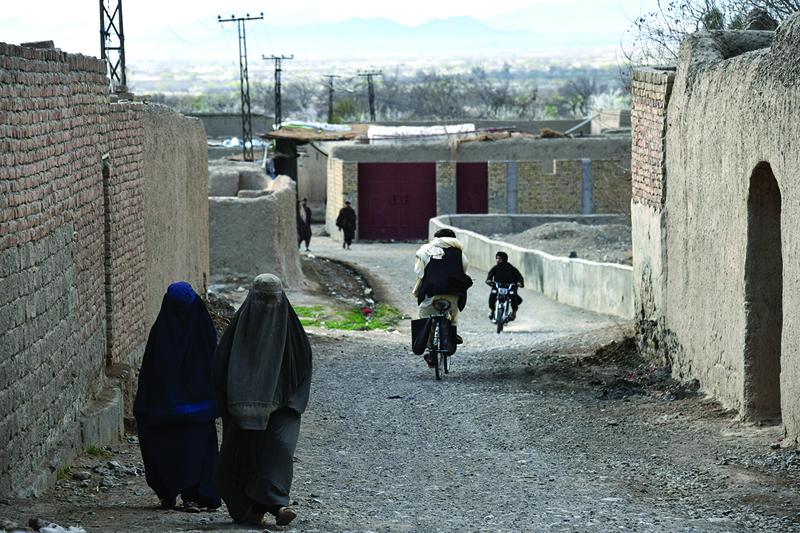KABUL: Afghan women are being cut off from crucial aid because of a growing Taleban crackdown in areas controlled by the insurgents, more than a dozen relief workers have told AFP. The militants have demanded an end to projects helping women to be more independent and have barred female staff from entering their territory in some areas.
"So far the hypothesis is that the Taleban have changed, but this is really a concrete example that they haven't," said one aid worker who did not want to be named. Washington recently lambasted the insurgents for failing to abide by a landmark deal last year that committed them to honoring a number of security guarantees.
The agreement also called for the withdrawal of foreign troops by May and paved the way for peace talks between the Taleban and the Afghan government. The deal initially raised hopes the insurgents were open to moderating some of their hardline positions. But people working in pockets of territory under Taliban control, primarily in northern Afghanistan, say conditions in some areas deteriorated after the US accord was signed.
'They're not joking at all'
Fears are growing that the Taleban are waiting for the Americans to leave before attempting to retake the country by force and reintroduce their draconian vision for Afghan society. The group ruthlessly oppressed women during their brief rule over the country in the 1990s, banning them from working outside the home and subjecting them to violent punishments for perceived infractions.
The jihadists have since made vague pledges to protect women's rights in Afghanistan. In an open letter published last month, Taliban co-founder Mullah Abdul Ghani Baradar said the group was "committed to upholding and guaranteeing all rights of women afforded to them by Islamic law".
But on the ground, aid groups say the group are as uncompromising as ever. Some say their work is unravelling after years of building up delicate relationships with the insurgents to reach impoverished Afghan women and girls. In a letter addressed to aid groups, the Taliban warned it was unacceptable for them to "take women out of their homes in the name of women's economic empowerment, education and sports programs".
Pressure against these kinds of programs are not new, but are becoming "a lot more official and widespread", a senior humanitarian aid manager said. "When you receive a letter from the Taleban, they're not joking at all, you have to apply it," said another official working with an international aid group.
After nearly 40 years of conflict, Afghanistan is almost entirely reliant on international aid and the Taleban appear set on bringing humanitarian workers to heel. "Aid workers and the relief they provide seem to have fallen in the crosshairs of the Taliban's attempts to portray themselves as a governing entity," said International Crisis Group analyst Andrew Watkins.
'We take blood on our hands'
Afghan women working with aid groups who once regularly travelled to insurgent-held enclaves in the north say they have been blocked by the Taleban from entering certain areas to work.
Doctor killed
Meanwhile, a female doctor was killed in a bomb blast in the eastern Afghan city of Jalalabad in what appeared to be another targeted hit, officials said yesterday, just days after three women media workers were gunned down in the area. Journalists, religious scholars, activists and judges have all been victims of a recent wave of political assassinations across Afghanistan, forcing many into hiding-with some fleeing the country.
In the latest incident, the doctor was killed after a magnetic bomb was attached to the vehicle she was travelling in, according to a spokesman from the provincial governor's office. A child was also injured by the explosion.
"She was commuting in a rickshaw when the bomb went off," the spokesman told AFP. Another spokesman from a provincial hospital also confirmed the incident and toll. No group has claimed responsibility for the blast. The attack comes two days after three female media workers were gunned down in Jalalabad in separate attacks that were just minutes apart.
The local Islamic State group affiliate said its gunmen carried out the killing of what it called "journalists working for one of the media stations loyal to the apostate Afghan government". Afghan and US officials have blamed the Taleban for the wave of violence, but the group has denied the charges. - AFP



